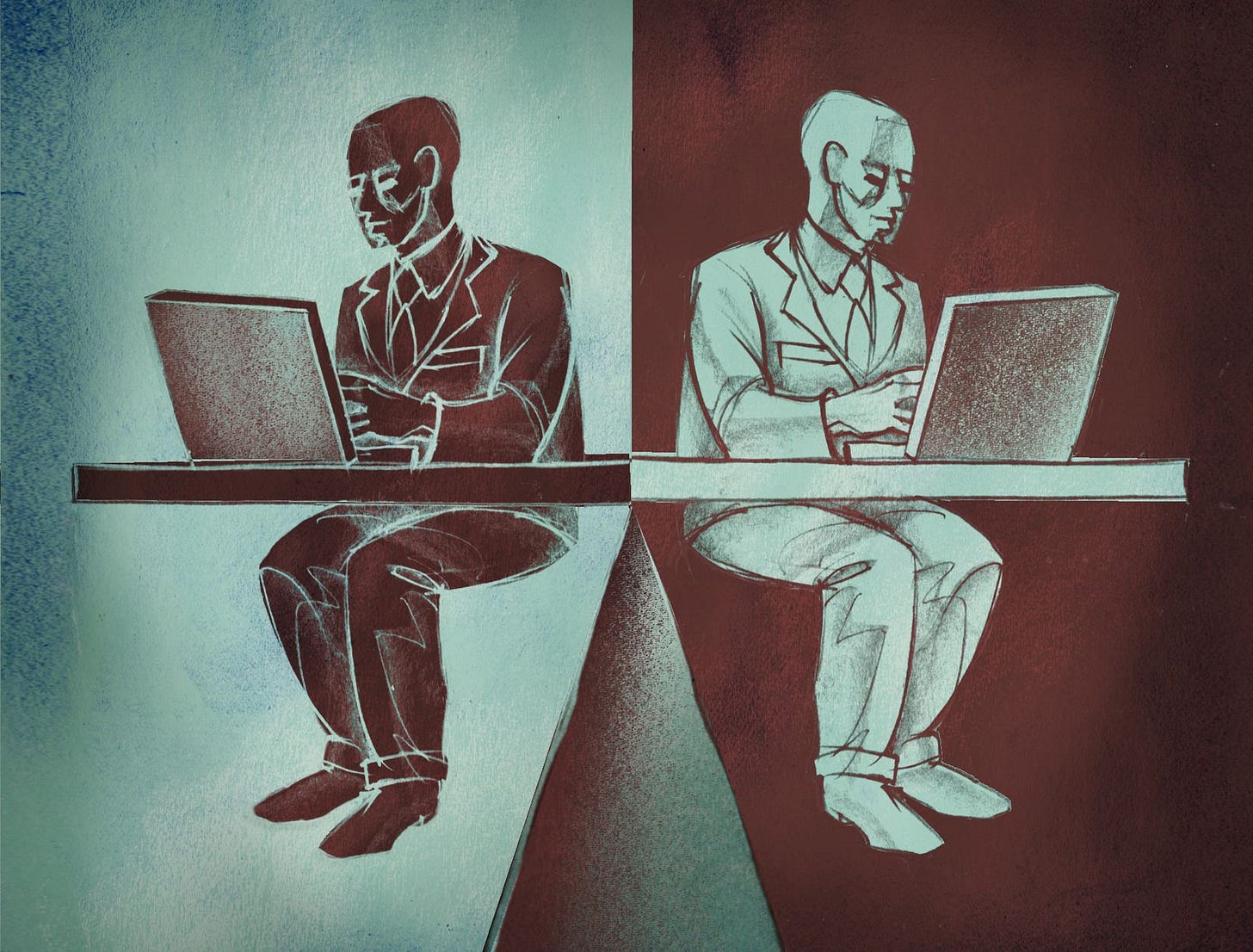The missed opportunity in Ken Burns' "The U.S. and the Holocaust"
This week on our Substack, Gabriel Brown writes about Ken Burns’ three-part documentary on PBS, The U.S. and the Holocaust.
A huge part of the civil rights movement’s success came from its nonviolent and compassionate resistance to hatred and injustice, and its insistence that through moral courage and leading by example, individuals could be taught to recognize and overcome their capacity for hatred. When we can no longer recognize the humanity of others—including even those who hate us—we quickly fall into the trap of hating them back. We dehumanize and vilify them by convincing ourselves that some people, through their own actions or beliefs, can be stripped of their inherent worth as human beings.
The missed opportunity in The U.S. and the Holocaust is that it seems to take Eisenhower’s statement at face value. Rather than engage in the complexity and nuance required to discover what was being—and should be—fought for, the documentary decided to end by highlighting once again what—and who—should be fought against. The focus was on human evil rather than humanity; vanquishing monsters rather than converting or preventing them; getting rid of problems instead of focusing on solutions.
Harvard, Herschel Walker and ‘Tokenism’
For The New York Times, FAIR advisor John McWhorter writes about the history behind the phrase “token Black,” racial tokenism, and the impact of these phenomena on our society, systems, and biases.
Our theoretically enlightened idea these days is that using skin color as a major, and often decisive, factor in job hiring and school admissions is to be on the side of the angels. We euphemize this as being about the value of diverseness and people’s life experiences. This happened when we — by which I mean specifically but not exclusively Black people — shifted from demanding that we be allowed to show our best to demanding that the standards be changed for us.
When the Supreme Court outlaws affirmative action in higher education admissions, as it almost certainly will, it will eliminate a decades-long program of tokenism. I’ve written that I support socioeconomic preferences and that I understand why racial ones were necessary for a generation or so. But for those who have a hard time getting past the idea that it’s eternally unfair to subject nonwhite students to equal competition unless they are from Asia, I suggest a mental exercise: Whenever you think or talk about racial preferences, substitute “racial tokenism.”
Chimamanda Ngozi Adichie: Author warns about 'epidemic of self-censorship'
In a BBC lecture on freedom of speech, Chimamanda Ngozi Adichi said young people were growing up "afraid to ask questions for fear of asking the wrong questions."
Nothing demonstrates this better than the recent phenomenon of 'sensitivity readers' in the world of publishing, people whose job it is to cleanse unpublished manuscripts of potentially offensive words. This, in my mind, negates the very idea of literature.
There is a difference between valid criticism, which should be part of free expression, and this kind of backlash, ugly personal insults, putting addresses of homes and children's schools online, trying to make people lose their jobs.
To anyone who thinks, well, some people who have said terrible things deserve it - no. Nobody deserves it. It is unconscionable barbarism. It is a virtual vigilante action whose aim is not just to silence the person who has spoken, but to create a vengeful atmosphere that deters others from speaking.
Disparity Doesn’t Necessarily Imply Racism
For The Wall Street Journal, Roland Fryer writes about how racial disparities don’t always indicate racism or racist systems and how his grandmother impacted his views.
I write this with some degree of trepidation, in part because I still have my grandmother in my ear and in part because I am keenly aware of the harm in underestimating bias. But there is also a cost to overemphasizing its impact. A black kid who believes he will face daunting societal obstacles is likely to underinvest in trying to climb society’s rungs. Every black student in the country needs to know that his return on investment in education is, if anything, higher than for white students.
The solution is neither to stop fighting biased behavior nor to curb honest inquiry about race in America. We shouldn’t stop searching for and penalizing discriminatory employers, or trying to reduce racial differences in police brutality, or estimating whether the value of a home appraisal depends on the race of the homeowner, or reducing bias in bail decisions by using artificial intelligence. I could go on, like the conversations stuck to those slipcovers. The solution isn’t to look away from discrimination. It does exist. But we also can’t point at every gap in outcomes and instantly conclude it’s racism. Prejudice must be measured rigorously. Statistically. Disparity doesn’t necessarily imply racism. It may feel omnipresent, but it isn’t all-powerful. Skills matter most.
How racial preferences feed grasping grievance groups and grow ever more absurd
For The Washington Post, George F. Will writes about the history of racial preferences in this country and how our current system encourages people to cling to a grievance mindset and flattens individuals’ unique identities. In his exploration of these topics, Will gives us a glimpse inside David E. Bernstein’s book, Classified: The Untold Story of Racial Classification in America.
Anyone acquainted with human nature — and with government, which exists to cope with human nature — should not be surprised: When government allocates opportunities on racial grounds, dispensing lucrative preferences when awarding contracts and subsidies, this gives rise to rackets. And given contemporary academia’s susceptibility to intellectual fads and political nonsense, it is unsurprising that logical absurdities and moral contortions accompany the use of racial preferences based on almost comically arbitrary racial categories in pursuit of a “diversity” supposedly beneficial to education.
The racial/cultural/geographic/whatever spoils system is now so entrenched, it is too late for what would encourage a shared national identity: complete separation of race and state. Meaning, government abstention from racial and ethnic classifications.
Today’s ever-more-arbitrary system vindicates Bernstein’s warning that such classifications are “self-fulfilling”: They encourage people to think of themselves not as individuals but as members of grasping grievance groups. Young people are taught this unattractive orthodoxy at colleges that celebrate a “diversity” that is skin-deep.
Want to help advance civil rights and liberties for all, and promote a common culture based on fairness, understanding, and humanity? Sign up for a free subscription today!
Join the FAIR Community
Become a FAIR volunteer or to join a FAIR chapter.
Join a Welcome to FAIR Zoom information session to learn more about our mission, or watch a previously recorded session in the Members section of www.fairforall.org.
Take the Pro-Human Pledge and help promote a common culture based on fairness, understanding, and humanity.
Join the FAIR community to connect and share information with other members.
Share your reviews and incident reports on our FAIR Transparency website.









